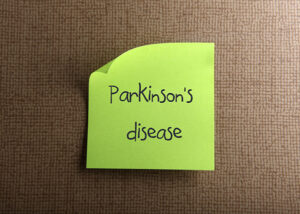April 4, 2023

Wondering what to expect from Parkinson’s? Read this blog post to find out!
More widespread in males, and more prevalent than muscular dystrophy, multiple sclerosis, and Lou Gehrig’s disease put together, Parkinson’s disease impacts approximately 7 – 10 million people worldwide, with another 600,000 US citizens diagnosed each year. While everyone’s experience with Parkinson’s may differ in severity, Parkinson’s does occur in five standard stages. In honor of Parkinson’s Awareness Month, Continuum shares the following information on what to expect from Parkinson’s.
Wondering What to Expect from Each Parkinson’s Stage?
Stage 1: Stage one is considered early-stage Parkinson’s, and most people only experience mild symptoms that may present as follows:
- Symptoms are on just one side of the body
- Symptoms are bothersome, but not disabling
- Uncontrolled shaking or tremors in one limb may be noticed
- Friends and family can usually notice changes in the person’s balance, facial expressions, and posture
Stage 2: When the second stage of Parkinson’s develops, difficulty completing common physical tasks may be more apparent:
- Posture is impacted
- The individual has marginal disability, and commonly encounters balance or ambulatory difficulties
- Symptoms will affect both sides of the body
Stage 3: This stage is regarded as moderate Parkinson’s disease, and more noticeable impairment will begin to develop:
- Early impairment of equilibrium may lead to the inability to stand or walk straight
- There is a substantial slowing down of the body movements
- There is general dysfunction that is moderately severe
Stage 4: By stage four, the aging adult will be in advanced Parkinson’s and experiencing severe symptoms:
- The person is unable to complete daily tasks and likely cannot live alone
- Tremors may lessen or disappear for unknown reasons during this time
- Rigidity and bradykinesia, or slow movements, are often apparent
Stage 5: The final stage of the disease usually takes over the patient’s physical movements:
- The individual may not be able to stand or walk
- The person frequently experiences a general decrease in strength and vitality of the mind and body
- One-on-one care is required
Continuum’s home care professionals have training in all facets of senior home care, and can help those with Parkinson’s and other conditions of aging to live fuller, more independent and comfortable lives at home. If you’re worried about what to expect from Parkinson’s and could use some support, we’re here to help with daily personal care, transportation and accompaniment to doctors’ appointments or to run errands, light housekeeping and meal preparation, or just to serve as a friendly companion to brighten up the day. Our senior care services are personalized to each individual’s needs and preferences. Contact us online, or call us any time to learn more at 314-863-9912.
